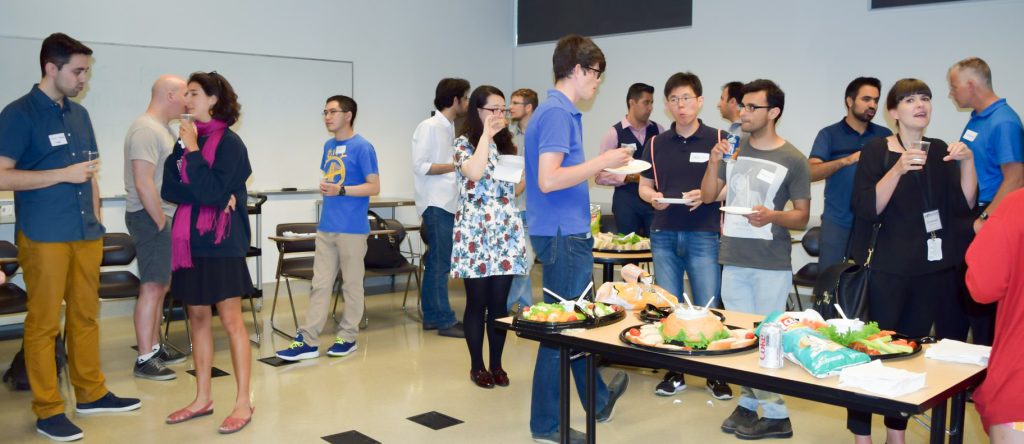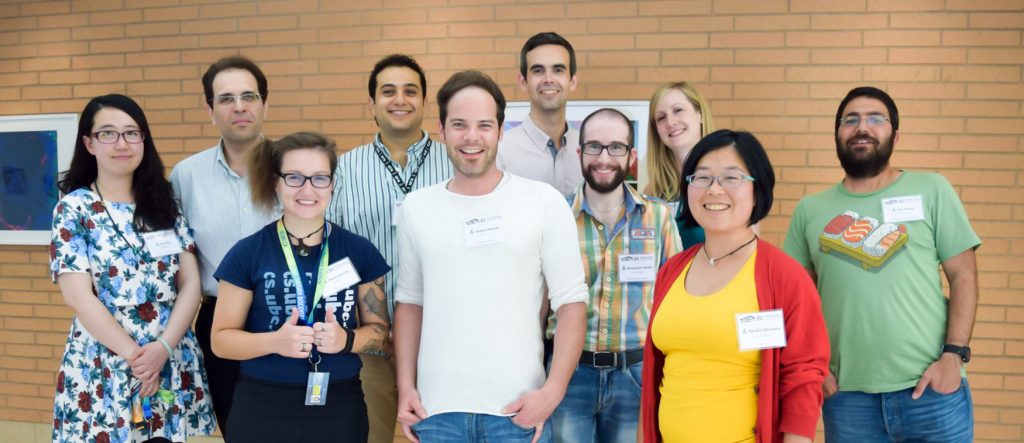The 2017 UBC PDA 3-Minute Postdoc Slam (3MPS) was a great success, with more presenters and a bigger audience than ever before. More than 60 postdocs, students, and faculty came along to hear 10 postdocs from across UBC compete to present their research to a general audience in the most engaging way, in just 3 minutes.
Thanks to another year of generous support from the UBC Life Sciences Institute (LSI), the event took place in LSC3 in the LSI. Alongside the 10 talks, judged by 3 faculty members from different academic institutions, there was an engaging and extremely useful feature presentation on science communication by Dr. Jenn Gardy, and a short talk on opportunities from Mitacs.
Following a brief introduction to the UBC PDA and an explanation of the rules from Kieran, the PDA President, the competition got under way. Competitors were allowed just 3 minutes to present their research projects using a single slide, with no animations, transitions, or moving media. A variety of approaches were taken, from slides with multiple detailed figures to just single images. The full list of the presenters and presentation titles is given at the end of this post.
After the first five presenters, Amin Aziznia from Mitacs gave his own 3-minute presentation explaining the funding and training opportunities available to postdocs at UBC. Following a coffee break to allow for some energetic discussions, the final five presenters gave their talks. Dr. Gardy, from UBC’s School of Population and Public Health, concluded the event with her presentation, entitled ‘A very, very short course in science communication’. Dr. Gardy is a science communicator extraordinaire, who has given many public lectures, presented several television programmes, and has thousands of followers on social media, and her talk contained tips useful for everyone from new graduate students to experienced faculty.
Dr. Gardy also judged the 3-minute presentations, along with Dr. Mahda Jahromi, from the British Columbia Institute of Technology, and Prof. Dr. Roland Herzog, who is currently visiting UBC from Technische Universität Chemnitz. All the presentations were extremely high quality, with 3rd to 7th places in the scoring separated by less than 1 point. The judges also made comments and suggestions that were passed to each presenter after the competition.
The winners were announced at a fully catered reception, generously supported by the BC Children’s Hospital Research Institute, where networking and many more discussions took place.
The UBC PDA Executive Team would like to congratulate the three winners, thank all the participants for making this an excellent event, and thank the three judges and the audience for supporting us. We hope everyone enjoyed themselves, and look forward to seeing you at future UBC PDA events!
The winners:
1st Place ($100) – Will Burt
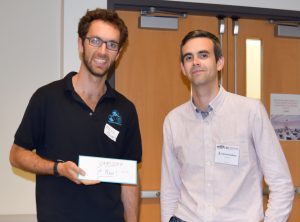
2nd Place ($75) – Beniamin Zahiri
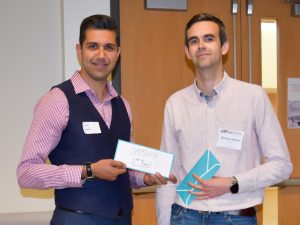
3rd Place ($50) – Christine Anderl
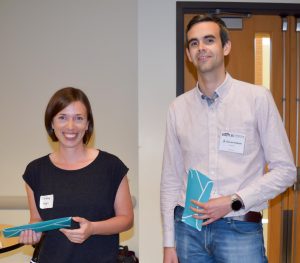
The presenters:
Amanda Haage, Department of Cellular & Physiological Sciences
‘Talin Autoinhibition Regulates Cell Behavior & Migration’
Amir Sharafian, Department of Mechanical Engineering
‘Methane Planet’
Fiona Choi, Department of Psychiatry
‘Mass Trauma and Mental Health’
Willis Monroe, Department of Asian Studies
‘Quantifying the History of Religion’
Rahul Sachdeva, International Collaboration of Repair Discoveries
‘Combined Regenerative and Rehabilitative Strategy for Cardiovascular Recovery after Spinal Cord Injury’
Beniamin Zahiri, Department of Mechanical Engineering
‘Smart Stimuli Responsive Surfaces – A Multifunctional Material’
Mohamed Elgendi, Department of Obstetrics and Gynecology
‘Help Me Help My Body: Visualization of Biosignals’
Christine Anderl, Department of Psychology
‘It’s the hormones talking…’
Will Burt, Department of Earth, Ocean and Atmospheric Sciences
‘Why is the ocean……green?!’
Navid Khosravi-Hashemi, School of Kinesiology
‘Galvanic vestibular stimulation as a pain management method’

